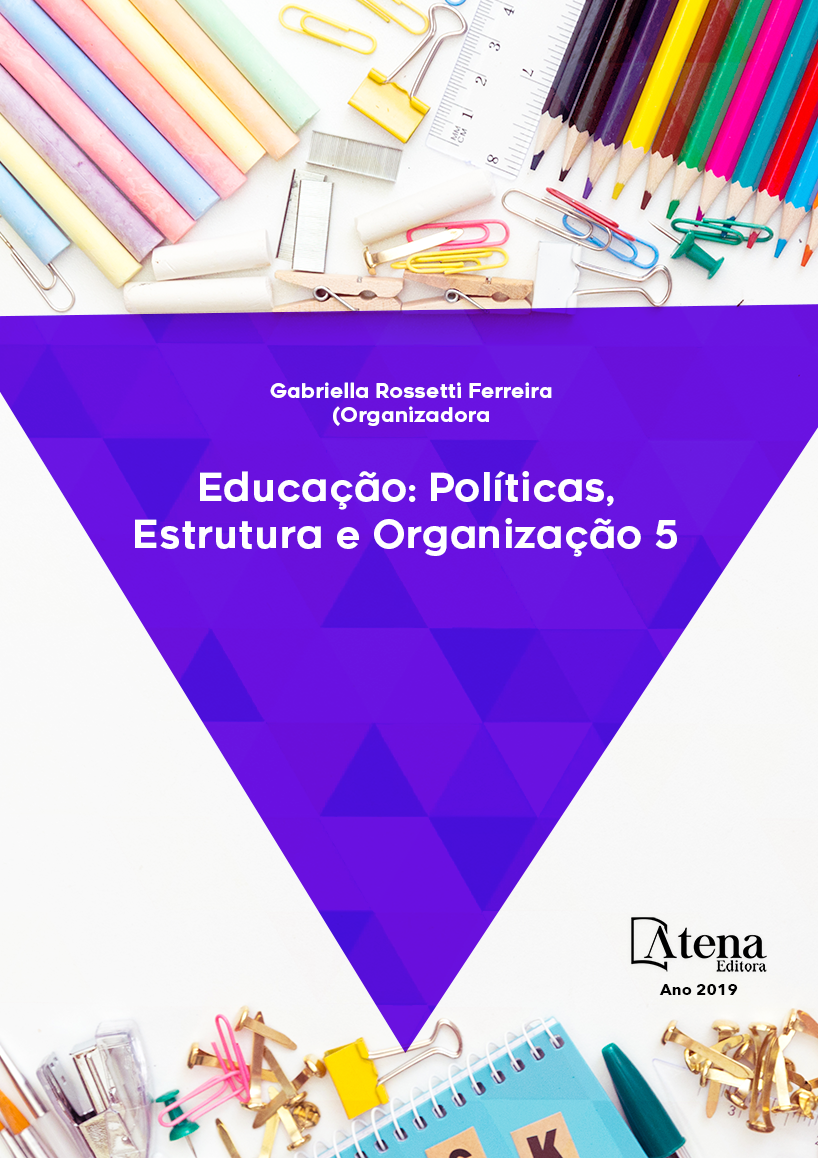
DA PRÁTICA AO RESULTADO: A AVALIAÇÃO COMO PROCESSO DE APRENDIZAGEM A PARTIR DO OLHAR DO PROFESSOR
A aplicação deste estudo teve como
princípio o objetivo de apreciar as ferramentas
pedagógicas utilizadas como meio de
avaliação do ensino/aprendizagem nos centros
educacionais. Contudo, o processo de avaliação
classificatório está intimamente embasado
nas escolas como ferramenta essencial da
verificação da aprendizagem. Sabendo serem
pertinentes metodologias tradicionais nesse
processo, ainda que sejam discutidas como
métodos que não vislumbram o aprendizado
consciente do sujeito, procuramos pôr em
prática caminhos opostos no intuito de agregar
os conhecimentos oriundos dos alunos aos
conteúdos programáticos elaborados em sala
de aula evidenciando o processo e não apenas
o resultado por meio de notas. Considerando
que cada indivíduo traz em si conhecimentos
prévios de sua própria existência, procuramos
introduzir em sala de aula a participação efetiva
do aluno em todas as atividades como em jogos,
rodas de conversa, pesquisas e apresentações
buscando a inter-relação dos conteúdos
programáticos com a vivência e habilidades
individuais. Podemos então definir que, a
avaliação classificatória além de engessar os
conhecimentos impunha o aluno a situações
de estresses tornando seu aprendizado
mecanizado. A elaboração de uma postura
metodológica que avalie o aluno por intermédio
de suas práticas e vivências dentro e fora da
sala de aula, nos proporcionou a ideia de um
conhecimento múltiplo e criativo favorecendo o
êxito da aprendizagem, bem como o interesse
do aluno pela sala de aula e consequentemente
pela escola e suas propostas.
DA PRÁTICA AO RESULTADO: A AVALIAÇÃO COMO PROCESSO DE APRENDIZAGEM A PARTIR DO OLHAR DO PROFESSOR
-
DOI: 10.22533/at.ed.06419030416
-
Palavras-chave: Avaliação, Aluno, Aprendizagem.
-
Keywords: Evaluation, Student, Learning.
-
Abstract:
The application of this study
was based on the objective to evaluate the
pedagogical tools used as a means of evaluating
teaching / learning in educational centers.
However, the grading process is intimately
based in schools as an essential tool for verifying
learning. Knowing that traditional methodologies
are pertinent in this process, even if they are
discussed as methods that do not envisage the
conscious learning of the subject, we seek to put
in practice opposing ways in order to aggregate
the students’ knowledge to the programmatic
contents elaborated in the classroom, evidencing the process and not just the result
by means of notes. Considering that each individual has prior knowledge of his / her
own existence, we try to introduce into the classroom the effective participation of the
student in all activities, such as games, talk wheels, researches and presentations,
seeking the interrelationship of the programmatic contents with the experience and
individual skills. We can then define that classificatory evaluation, besides embedding
the knowledge, would impose the student in situations of stress, making his learning
mechanized. The elaboration of a methodological posture that evaluates the student
through his practices and experiences inside and outside the classroom, gave us the
idea of a multiple and creative knowledge favoring the success of the learning, as well
as the student’s interest in the classroom. the school and its proposals.
-
Número de páginas: 15
- SILVA, Sílvio César Lopes
- NUNES, Cássia de Sousa Silva
- GOMES, José Robson Nunes
- Sílvio César Lopes da Silva


